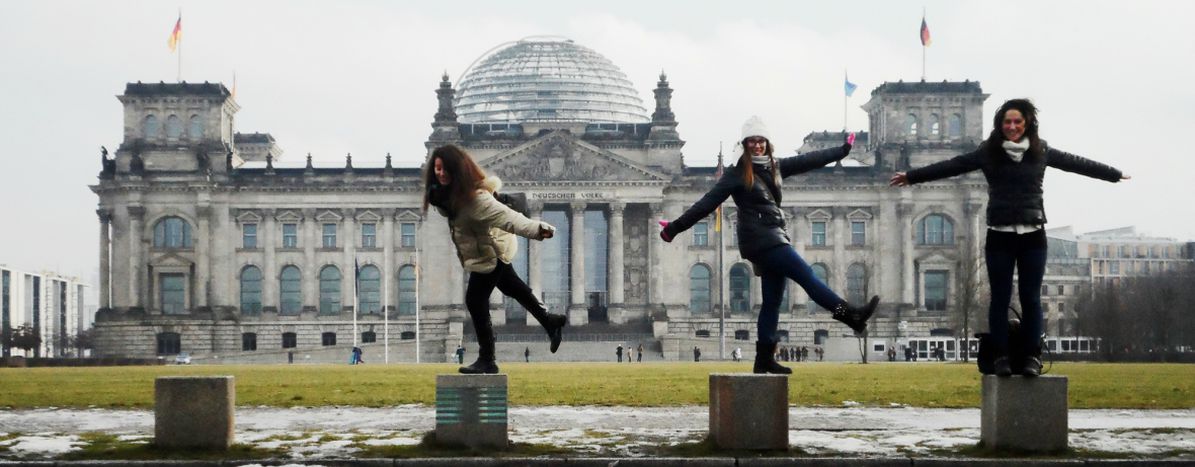
Ich bin ein Berliner - and it took the AfD to make me see it
Published on
The state elections in Berlin this weekend saw the "people's parties" - Social Democrats and the Christian Democratic Union - lose ground to the right-wing AfD. It's not great news, but it made me feel more like a real Berliner than ever before. [OPINION]
As I made my way to the polling station in my Berlin neighborhood on Sunday morning, I walked by a man and a woman chatting, accompanied by their dogs.
“That’s dangerous," the woman said, pointing at the green ball the man’s dog was carrying in his mouth. The man laughed: “He’s colourblind”.
“That’s what I always say about mine too,” the woman answered in a bright Berlin dialect.
Even the colour of dog toys was considered political on this sunny autumn day in Germany’s capital. Turns out, the dog was on the money. In the next years, Berlin will probably be ruled by a coalition of Social Democrats, the Greens and the Left Party – red, green, red. Angela Merkel’s Christian Democrats had their worst ever result in Berlin, and will have to join the opposition.
The big winner of the evening was the right-wing populist party AfD (Alternative for Germany). It was the first Berlin election the AfD took part in, racking up 14.2% of the vote. It’s depressing as it sounds. Contrary to what its name promises, the AfD doesn’t offer any political alternative apart from populist claims and the demand to stop refugees from coming to Germany. Again and again, members of the AfD have made headlines with racist and extremist comments.
Take Beatrix von Storch, one of the AfD leaders in Berlin, who once suggested shooting refugees at the German border – of course, von Storch later claimed that this was all a huge misunderstanding. At the moment the party is trying to revive the German term “völkisch” [meaning populist or nationalist, Ed.], rightly out of use today, as it stands for a racial (and therefore racist) concept used by the Nazis. During the usual election coverage on TV in the evening, one AfD supporter even claimed that no party would distance itself from right-wing extremism as much as the AfD. I had to turn off the TV.
There was one upside to this election: voter turnout reached its highest level since 2001. About 100,000 eligible voters who didn’t participate in the last elections in 2011 made their voices heard. Unfortunately, it was the AfD that profited from this – but still, getting people to the polls is hugely important for every democracy. What would be the alternative? Telling people not to vote in order to get the desired result? It sounds like a joke, but a few months ago political communication experts close to the Social-Democratic party proposed exactly that.
This was my first Berlin election since I moved here in February 2012, and strangely it made me feel more like a real Berliner than I ever have before. I never wanted to live in the capital; I came here for an internship, and ended up staying for work. I’m more a Berliner by head than by heart. Still, seeing the election coverage on TV yesterday and all the grumpy, angry and unsatisfied Berliners interviewed on the streets, I couldn’t help but feel offended on behalf of the city. Listening to these people (and to the dramatic voices of the TV journalists), you could get the impression that Berlin is the worst place to live in Europe.
It’s true that a lot of things in Berlin don’t work: our shiny new airport has sucked in billions of Euros and nobody really believes that it will ever open. There are endless construction sites, the administration is a mess – and that was before the AfD.
Yes, Berlin can be a pain in the ass. But it’s our pain in the ass.



